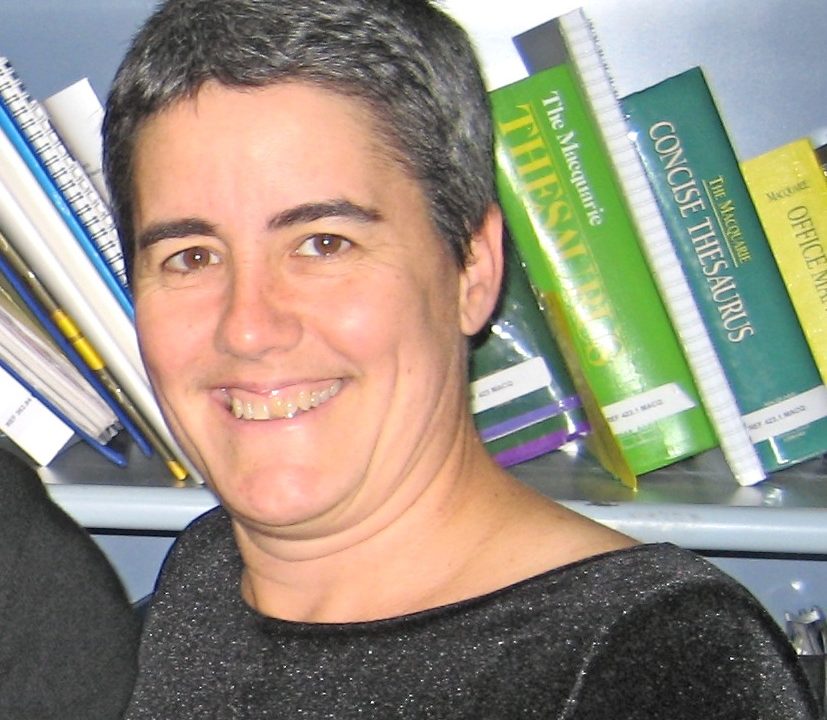
In June 2004, a former co-ordinator of the NSW Disability Discrimination
Legal Centre, Robin Banks, became PIAC chief executive officer and director of
the Public Interest Law Clearing House.
Robin led PIAC for the next six years before she was appointed Tasmania’s Anti-Discrimination Commissioner.
Homelessness, unlawful detention of young people, human rights,
Indigenous justice, disability access, homosexual vilification, mental health,
and the impact of rising electricity costs were among the key issues PIAC
addressed during these years.
In May 2005, the then NSW Attorney General, the Hon Bob Debus, launched
the newest Homeless Persons’ Legal Service (HPLS) clinic with PILCH member
firm, Baker & McKenzie, and the Salvation Army Streetlevel Mission.
In March 2006, PIAC released Not Such a Fine Thing, a report into the
impact of fines on homeless and disadvantaged members of the community; and in
June that year PIAC secured a three-year funding grant for HPLS from the NSW
Public Purpose Fund.
Work with the NSW Government on implementing recommendations made in Not
Such a Fine Thing resulted in the 2008 announcement by the NSW
Government of a pilot program to reform the way in
which fines could be paid. This was a very welcome development. The then NSW
Attorney General, the Hon John Hatzistergos, announced that people would have a
number of options, other than up-front cash payment, to deal with fines. These
options included a Work and Development Order (WDO), which would enable a
person to work off a fine through voluntary work, undertaking training or
participating in treatment.
At the time, Robin commented: ‘These reforms will make
a very real difference to the experience of homeless people and many others who
face disadvantage in our communities. For the first time, they can be proactive
in responding to a fine, through giving back to the community in the form of
voluntary work in the community. We know, through HPLS, that there are homeless
people and community organisations who have wanted this option for some time. I
expect the Government’s reforms to be a very successful change in its approach
to fines.’
In 2011, the current Attorney General, the Hon Greg
Smith, decided to make the WDO reform permanent.
The unlawful and unnecessary detention of young people in NSW was another
issued PIAC addressed during this time.
PIAC joined with Legal AID NSW and
PILCH in 2005 to establish the Children in Detention Advocacy Project. This
project ultimately led to the launch of a class action on behalf of young
people unlawfully detained by NSW police for alleged breach of bail conditions.
PIAC’s successful representation of Romzi Ali’s defamation claim against
Nationwide News, following publication of articles in The Australian newspaper that
linked Mr Ali with terrorist activity, was one of many human rights issues
taken up during Robin’s time as PIAC chief.
In 2005, PIAC published Protecting Human Rights in Australia in three community
languages: Chinese, Arabic and Vietnamese. Also that year, PIAC conducted
Protecting Human Rights train-the-trainer workshops in Perth, Brisbane,
Adelaide, Melbourne, and Sydney. These workshops trained hundreds of people,
who would in turn train others on human rights.
A decision in Applteon v State of NSW was delivered in mid-2005,
with PIAC establishing that the NSW Department of Corrections had failed in its
duty of care to the mother of a young Aboriginal man who died in custody. The
Stolen Wages scheme was also established at this time, and in November 2005,
some of PIAC’s Stolen Wages applicants received their first payments from the
scheme.
PIAC and the Australian Privacy Foundation led a campaign in 2006 on the
proposed Health Access Card, calling for stronger privacy protections. In May
2006, PIAC established the Mental Health and Prisons Network for consumers,
health professionals and advocates to examine the issues of mental illness in
NSW prisons.
PIAC joined with the Australian Centre for Disability Law in mid-2006 to
initiate a national action campaign on accessible airlines. PIAC client Maurice
Corcoran was ultimately successful in his campaign to have airline Virgin Blue (now known as Virgin Australia) change its ‘Independent Travel Criteria’ so that people with disability were no
longer disadvantaged.
PIAC represented applicants in disability
discrimination complaints against Virgin Blue in Corcoran
v Virgin Blue and Ferguson v Virgin Blue. The complaints
were successfully resolved by mediation prior to hearing, in January 2009.
In October 2009, Virgin Blue released its Independent Travel Criteria so that
Mr Corcoran, Mr Ferguson and other people with a disability could travel
without having to pay for a travelling companion. The new Independent Travel
Criteria were enshrined in orders made by the Federal Court with the consent of
the parties.
The airline access work resulted in the publication, Flight
Closed, reporting on the experience of people with disability
in airline travel in Australia. That report was submitted to the review of the
Disability Standards for Public Transport and made clear that the light touch
regulation in the standards in respect of airlines was insufficient.
Return to People power: commitment, energy and dedication
Return to Celebrating 30 years of public interest advocacy